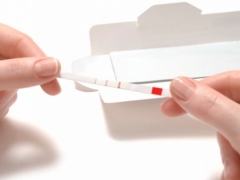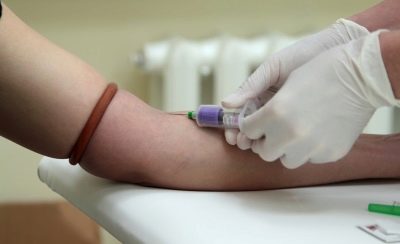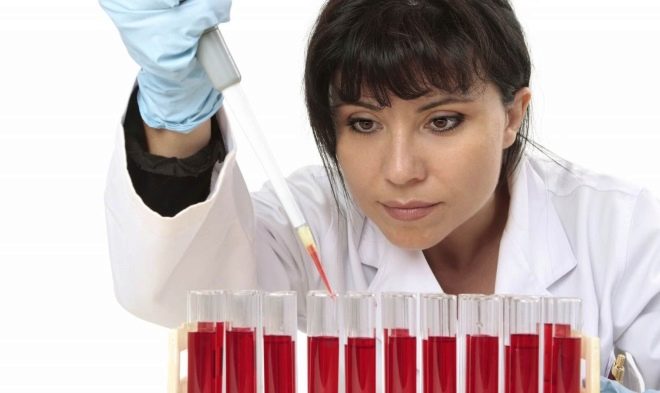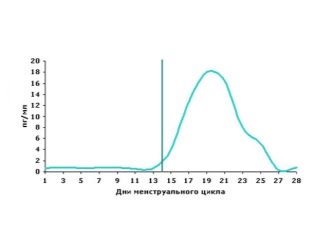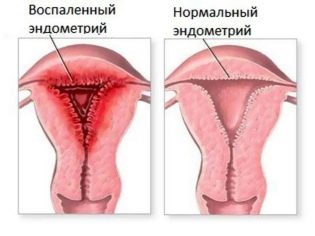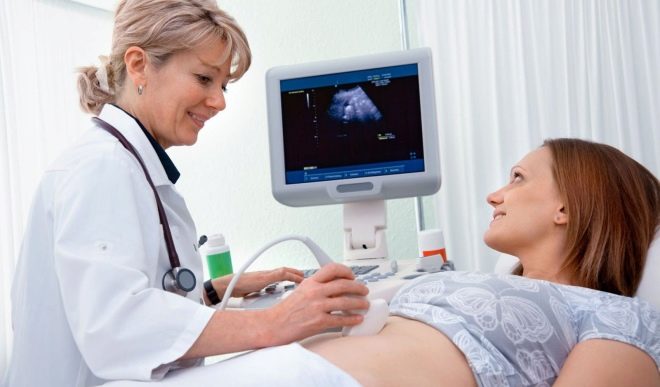Biochemical pregnancy after IVF
Biochemical pregnancy after IVF (in vitro fertilization) is quite common in world clinical practice. In this case, we can say that the pregnancy took place: the ovum was successfully implanted into the endometrial wall (uterine mucosa), but it could not develop, since spontaneous abortion occurs at very early gestational periods.
A woman may not be aware of the occurrence of pregnancy and its subsequent interruption. If conception occurs naturally, the risk of a biochemical pregnancy is extremely small.
What is biochemical pregnancy
From the natural biochemical pregnancy differs only in early termination. Spontaneous abortion occurs almost immediately after the introduction of the ovum. Pregnancy is interrupted before the possibility of registering it on an ultrasound or medical examination. BHB initially develops as a natural, but due to a certain disturbance of physiological mechanisms does not become a clinical form. Instead, begin monthly. With the menstrual blood comes out and the ovum.
According to statistics, more than half of women of reproductive age are experiencing this phenomenon. At the same time they know that the pregnancy took place, in a few units. Spontaneous abortion occurs with the onset of menstruation. In the early stages of gestation, the woman does not know about her position, so the bleeding from the vagina does not cause her anxiety. They may be unusually heavy or accompanied by uncharacteristic pain. Only a woman who planned conception can alert this situation.
After biochemical pregnancy, the female body recovers independently. Taking into account all factors, it is not surprising that most women have no idea about biochemical pregnancy. Experts in the field of reproductive health have actively started talking about this problem relatively recently - with the development and popularization of the IVF procedure. It helps many couples to solve the problem of infertility, but after carrying out such a manipulation biochemical pregnancy happens quite often.
With natural fertilization, biochemical pregnancy is extremely rarely recorded due to the difficulties of determination. With IVF it is easier to recognize. Not later than 14 days after embryo grafting, the analysis of hCG (human chorionic hormone) is carried out. Based on the indicators of its content in the woman’s body, it is possible to determine whether the pregnancy has occurred, and to classify it as a biochemical conception in case of spontaneous abortion.
Causes of biochemical pregnancy as a result of IVF
A pregnancy may not develop into a clinical form due to several factors.
- Endocrine imbalance. For the safe implantation of the embryo and its subsequent preservation, the female sex hormone, progesterone, is responsible. Its level in a woman’s body decreases with a reduced functional activity of the corpus luteum. In this case, the expectant mother has the symptoms of the threat of spontaneous abortion or miscarriage occurs.
- Chromosomal mutations of the embryo. They can appear at any time, but there are extremely critical periods. In the first three days after fertilization, the zygote cell division is carried out by the genetic material of the egg, and on the fourth day the embryo's own gene appears. If there are no various kinds of defects in it, then the embryo continues to develop safely. Therefore, when grafting three-day-old morula, the probability of pregnancy is 39-41%, and five-day-long pregnancy is about 42-48%.
- Autoimmune processes in the maternal organism and other abnormalities in its immune system. In this case, the immunity of the woman perceives the embryo as a foreign object, so the cells of the immune system begin to attack it in every possible way. For example, when antiphospholipid syndrome produces antibodies to phospholipids, which are produced in the process of introducing the ovum into the endometrium. This pathology is characterized by the threat of thrombosis, which can lead to malnutrition of the embryo and, as a result, abortion at an early stage.
- Blood disorders in a woman due to a violation of the clotting mechanism (such as thrombophilia). Increased aggregation (gluing) of platelets leads to blockage of small blood vessels, which causes malnutrition of the embryo and leads to its death.
Also, biochemical pregnancy can occur as a result of replanting a qualitative blastocyst (the early stage of embryo development) into the endometrium with insufficient receptive properties. This condition is typical for:
- ovarian hyperstimulation syndrome (a pathological condition that develops after the use of hormonal agents in order to stimulate ovulation);
- endometrial hyperplasia (pathological proliferation of the mucous membrane of the uterus);
- extremely high concentrations of progesterone;
- the presence of concomitant inflammatory diseases.
In order not to lose embryos, transplantation can be made in another cycle - when the condition of the woman is normalized. At the same time, genetic material is subjected to the process of cryopreservation (low-temperature storage of living biological objects with the possibility of restoring their biological functions after thawing).
In most cases, reliably determine the causes of biochemical pregnancy is impossible. The doctor may identify the most likely factors that can trigger a spontaneous abortion in the early period of gestation. The many reasons for this phenomenon to this day remains a mystery to reproductive specialists. This confirms the fact that preclinical abortion often happens in absolutely healthy women during natural conception.
Clinical picture
A sufficient number of couples face the problem of infertility. One of the possible solutions to this problem is often the IVF procedure. Having agreed to this step, the spouses can become parents after 9 months, however with this form of artificial insemination there is a risk of biochemical pregnancy. The degree of likelihood of developing a similar situation directly depends on the state of health of the woman and the individual tolerance of the IVF procedure.
Women who do not plan to become a mother in the near future, quite often fail to notice her biochemical breakdown. Subjectively, they do not feel any changes before the next menstruation. In turn, women who are planning a pregnancy, more attentively listen to themselves, so all sorts of deviations cause them questions.
Symptoms of biochemical pregnancy:
- delayed menstruation;
- uncharacteristic abundance of discharge or monthly "piece";
- intense pains.
In most cases, biochemical pregnancy is the reason for conducting a comprehensive examination of women, although quite often this phenomenon is rare and leaves no serious consequences.
You will learn more about the features of biochemical pregnancy by watching the following video.
Treatment
Biochemical pregnancy in vitro fertilization is not a disease, so there is no need to treat it. This condition can be called a consequence of any irregularities in the body of a woman, which at this stage must be identified and eliminated before re-entering the IVF protocol.
Successful IVF after biochemical pregnancy is possible, but only if it is possible to eliminate the cause of the problem. Proper examination and treatment will help increase the chance of pregnancy at the next IVF attempt.
When to start planning
A normal pregnancy after a biochemical failure has occurred can be detected soon. The probability of positive carrying a baby in this case is quite large. Early spontaneous abortion is not the cause of the development of complications that can affect the reproductive function of women. From this we can conclude that there is no need to postpone the long-awaited pregnancy for a long time.
